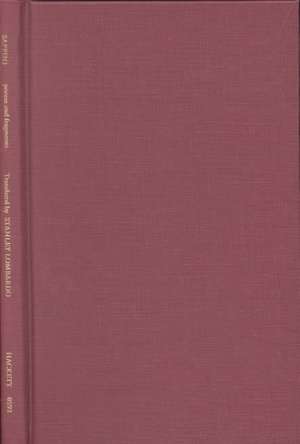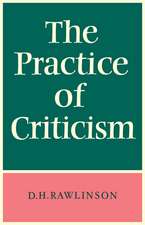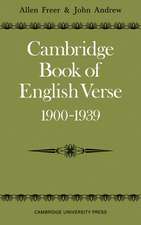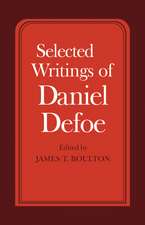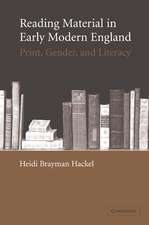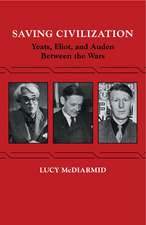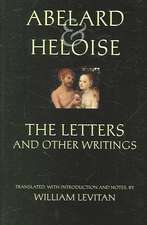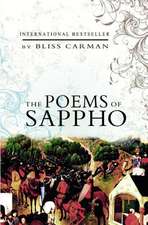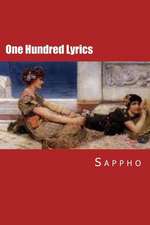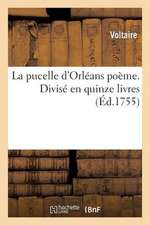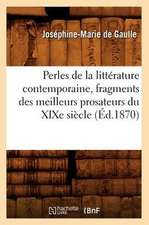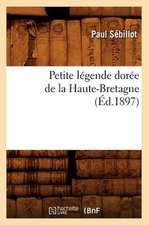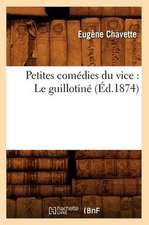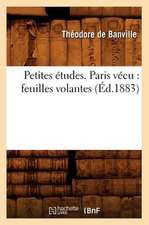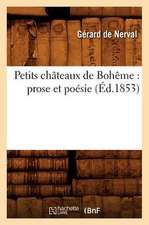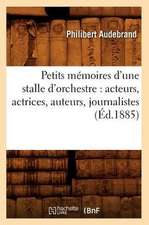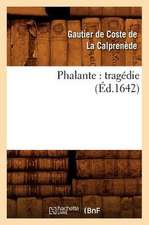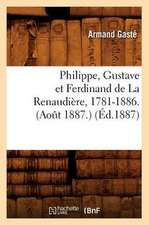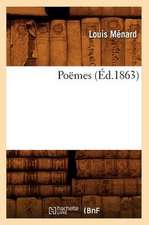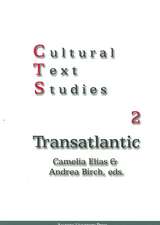Poems and Fragments: Hackett Classics
Autor Sappho Traducere de Stanley Lombardo Introducere de Pamela Gordonen Limba Engleză Hardback – 14 mar 2002
| Toate formatele și edițiile | Preț | Express |
|---|---|---|
| Paperback (1) | 85.14 lei 3-5 săpt. | |
| Hackett Publishing Company – 14 mar 2002 | 85.14 lei 3-5 săpt. | |
| Hardback (1) | 195.50 lei 3-5 săpt. | |
| Hackett Publishing Company – 14 mar 2002 | 195.50 lei 3-5 săpt. |
Din seria Hackett Classics
-
 Preț: 65.88 lei
Preț: 65.88 lei - 14%
 Preț: 184.08 lei
Preț: 184.08 lei - 7%
 Preț: 81.60 lei
Preț: 81.60 lei - 8%
 Preț: 345.52 lei
Preț: 345.52 lei - 7%
 Preț: 143.79 lei
Preț: 143.79 lei - 8%
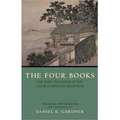 Preț: 106.45 lei
Preț: 106.45 lei - 8%
 Preț: 314.30 lei
Preț: 314.30 lei - 14%
 Preț: 171.00 lei
Preț: 171.00 lei - 11%
 Preț: 209.65 lei
Preț: 209.65 lei - 8%
 Preț: 125.82 lei
Preț: 125.82 lei - 7%
 Preț: 108.56 lei
Preț: 108.56 lei - 8%
 Preț: 309.90 lei
Preț: 309.90 lei - 9%
 Preț: 318.62 lei
Preț: 318.62 lei - 8%
 Preț: 293.06 lei
Preț: 293.06 lei - 18%
 Preț: 336.33 lei
Preț: 336.33 lei - 8%
 Preț: 292.34 lei
Preț: 292.34 lei - 8%
 Preț: 138.63 lei
Preț: 138.63 lei - 11%
 Preț: 210.28 lei
Preț: 210.28 lei - 7%
 Preț: 74.13 lei
Preț: 74.13 lei - 13%
 Preț: 263.30 lei
Preț: 263.30 lei - 13%
 Preț: 262.04 lei
Preț: 262.04 lei - 8%
 Preț: 85.81 lei
Preț: 85.81 lei - 12%
 Preț: 269.79 lei
Preț: 269.79 lei - 7%
 Preț: 101.44 lei
Preț: 101.44 lei - 8%
 Preț: 92.26 lei
Preț: 92.26 lei - 14%
 Preț: 183.57 lei
Preț: 183.57 lei - 9%
 Preț: 304.37 lei
Preț: 304.37 lei - 8%
 Preț: 294.64 lei
Preț: 294.64 lei - 14%
 Preț: 171.16 lei
Preț: 171.16 lei - 7%
 Preț: 128.27 lei
Preț: 128.27 lei - 8%
 Preț: 299.09 lei
Preț: 299.09 lei - 13%
 Preț: 264.76 lei
Preț: 264.76 lei - 8%
 Preț: 332.07 lei
Preț: 332.07 lei - 13%
 Preț: 246.98 lei
Preț: 246.98 lei - 13%
 Preț: 243.54 lei
Preț: 243.54 lei - 13%
 Preț: 265.61 lei
Preț: 265.61 lei - 8%
 Preț: 310.67 lei
Preț: 310.67 lei - 8%
 Preț: 118.74 lei
Preț: 118.74 lei - 7%
 Preț: 323.40 lei
Preț: 323.40 lei - 8%
 Preț: 331.87 lei
Preț: 331.87 lei - 13%
 Preț: 175.48 lei
Preț: 175.48 lei - 8%
 Preț: 327.47 lei
Preț: 327.47 lei - 13%
 Preț: 231.00 lei
Preț: 231.00 lei
Preț: 195.50 lei
Preț vechi: 228.73 lei
-15% Nou
Puncte Express: 293
Preț estimativ în valută:
37.41€ • 39.34$ • 30.91£
37.41€ • 39.34$ • 30.91£
Carte disponibilă
Livrare economică 27 martie-10 aprilie
Preluare comenzi: 021 569.72.76
Specificații
ISBN-13: 9780872205925
ISBN-10: 0872205924
Pagini: 96
Dimensiuni: 150 x 225 x 13 mm
Greutate: 0.22 kg
Editura: Hackett Publishing Company
Colecția Hackett Publishing Company, Inc (US)
Seria Hackett Classics
ISBN-10: 0872205924
Pagini: 96
Dimensiuni: 150 x 225 x 13 mm
Greutate: 0.22 kg
Editura: Hackett Publishing Company
Colecția Hackett Publishing Company, Inc (US)
Seria Hackett Classics
Recenzii
The four sections of this book [Introduction, Translator's Note, translations, Notes on Ancient Sources] work remarkably well together, presenting the fragments of Sappho according to 'the idea of the isolated message' (xvii). The dominant and characteristic interest shared by both Lombardo as translator and Gordon as introducer is their concerted effort to validate 'fragments as esthetic wholes' (xxvi). Lombardo's translations are pleasantly distinct from those of any other I am aware of both for their sonorous but straightforward rendering in modern spoken American English . . . [an edition] better both for its clear translations, and for the breadth and depth of the critical Introduction. Lombardo's strategy as translator is to convey not only the Greek by means of English, but also the experience of reading 'Sappho as a pure, received text' (xxvi) by means of direct, plain presentation of the poem . . . A unique and welcome contribution to the diversity of English translations available. --Travis Feldman, The Bryn Mawr Classical Review
I have long been an admirer of Stanley Lombardo's translations of Homer, and I was curious to see how he would adapt his fast-paced, lively style to Sappho. He has succeeded admirably. His translation of 73 poems of Sappho is clear, energetic, and close to the Greek. Pamela Gordon's Introduction gives a lucid and useful guide for the non-specialist to the last fifty years of scholarly debate on Sappho. This edition will be particularly useful for instructors of courses in translation seeking an introduction to Sappho for the Greekless student. It is also a pleasure to read. --Laurel Bowman, The Classical Bulletin
Gordon's Introduction is a clear summation of the poetic and scholarly aura surrounding the figure of Sappho and these literary fragments. . . . This essay, complete with selective bibliography at the end, could be assigned to undergraduates as a first introduction to both the poetry and the phenomenon of Sappho. . . . Lombardo's translations are lively and accessible; Sappho lives anew for the English reader. . . . Ideal for teaching at the undergraduate level. --Cashman Kerr Prince, New England Classical Journal
I have long been an admirer of Stanley Lombardo's translations of Homer, and I was curious to see how he would adapt his fast-paced, lively style to Sappho. He has succeeded admirably. His translation of 73 poems of Sappho is clear, energetic, and close to the Greek. Pamela Gordon's Introduction gives a lucid and useful guide for the non-specialist to the last fifty years of scholarly debate on Sappho. This edition will be particularly useful for instructors of courses in translation seeking an introduction to Sappho for the Greekless student. It is also a pleasure to read. --Laurel Bowman, The Classical Bulletin
Gordon's Introduction is a clear summation of the poetic and scholarly aura surrounding the figure of Sappho and these literary fragments. . . . This essay, complete with selective bibliography at the end, could be assigned to undergraduates as a first introduction to both the poetry and the phenomenon of Sappho. . . . Lombardo's translations are lively and accessible; Sappho lives anew for the English reader. . . . Ideal for teaching at the undergraduate level. --Cashman Kerr Prince, New England Classical Journal
Descriere
Descriere de la o altă ediție sau format:
Presents a Sappho by a poet and translator that treats the fragments as aesthetic wholes, complete in their fragmentariness, and which is also, as the translator puts it: 'ever mindful of performative qualities, quality of voice, changes of voice...'
Presents a Sappho by a poet and translator that treats the fragments as aesthetic wholes, complete in their fragmentariness, and which is also, as the translator puts it: 'ever mindful of performative qualities, quality of voice, changes of voice...'
